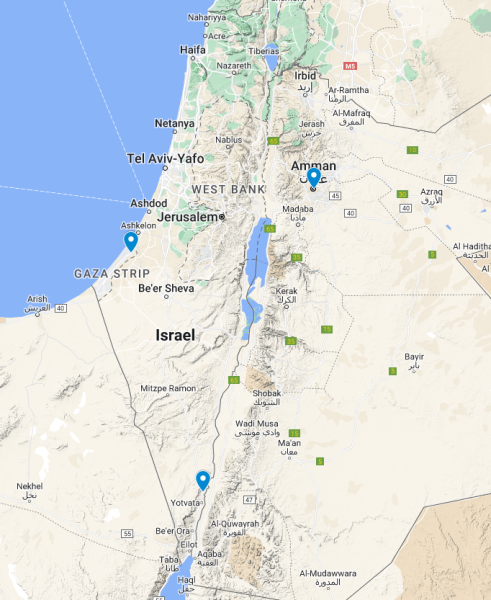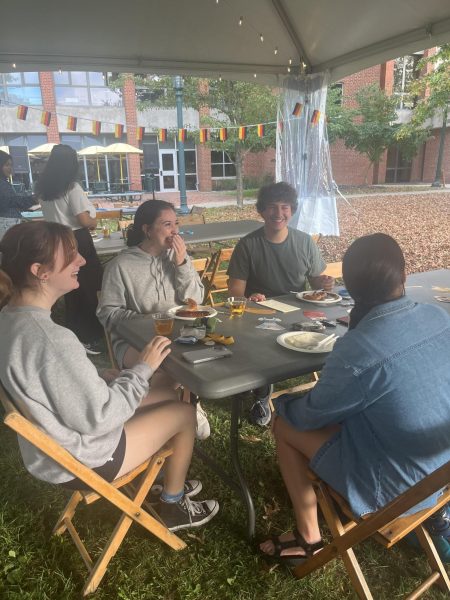Trial of foreign aid workers sparks international immigration debate
Over the past several years, more awareness has been shed on immigration. Most recently, in Lesbos, Greece, 24 migrant aid workers were indicted for their roles in aiding illegal immigrants and asylum seekers to escape the Middle East into Greece. The court recently dismissed the case for the time being, ruling on procedural grounds that the prosecutors could refile the case.
“Trials like this are deeply concerning because they criminalize life-saving work and set a dangerous precedent,” the U.N. Human Rights Office stated during the trial, according to AP News. “Indeed, there has already been a chilling effect, with human rights defenders and humanitarian organizations forced to halt their human rights work in Greece and other EU countries.”
Greece began clamping down on migrants and asylum-seekers in 2015 when millions of people crossed into Greece from Turkey during a refugee crisis, and has continued to do so frequently, according to AP News. Greece built a fence around the land border and has increased sea patrols.
Authorities in Greece pressed charges for espionage, forgery, felony concerning human trafficking and unlawful use of radio frequencies. Human rights organizations criticized the aid workers for potentially using illegal methods to help migrants, according to the Washington Post. Had the case gone to trial, the workers would have faced up to eight years in prison, according to the New York Times.
The aid workers were 17 foreigners and seven Greek citizens, according to AP News.
There were many legal discrepancies from the prosecutors, which gave the defendants a solid argument, according to AP News. The defense lawyers were granted many acceptions for things such as authorities not translating the prosecution documents for the foreign defendants and because the espionage charges were vague. These legal mistakes won the migrant aid workers’ case .
“It is a step,” said defense lawyer Cleo Papapantoleon, during an interview with AP News. “It is the first recognition that there were many legal mistakes that violated the essence of a fair trial. The decision is important for us, and we expect the same to happen with the investigation into the felonies (as individuals), for which there is also no evidence.”
Although cases like this run rampant in Greece and other European countries, this case has garnered more attention due to the fame of several defendants. Sarah Mardini, a Syrian human rights worker is a refugee and competitive swimmer whose sister, Yusra Mardini, was part of the refugee swimming team at the Olympic Games in 2016 and 2021, and even had a dedicated Netflix movie about her success.
“We urge the Greek authorities once more to drop all of the charges and allow Sarah and Sean (another worker on trial) to go back to their lives,” said Nils Muiznieks, director of Amnesty International’s European Regional Office, when speaking to the New York Times. “The criminalization of these brave human rights defenders solely for helping refugees and migrants in need shows Greece and Europe’s callous behavior toward people seeking safety at their borders.”
Despite the situation, the court’s ruling works in the defendants’ favor. Authorities are unlikely to have enough time to refile the case because the five-year limitations on the espionage and forgery charges expire in early February.
“Today’s decision offers the authorities a new opportunity to put an end to this ordeal and correct their wrongdoing by dropping all of the charges, including the more serious felony charges which still await them,” Muiznieks told the New York Times.
This trial is one of the few that rule in immigrants’ favor. Migration to Europe has peaked in recent years due to political instability and poverty in Middle Eastern countries such as Syria and Turkey, according to the Washington Post. Greece’s proximity to the Middle East has motivated many immigrants to attempt to escape there.
“I think Europe for a very long time was very open,” said Model United Nations President Rutendo Mavunga, ’24. “I think it’s only until now have they become strict but I feel like for a very long time, they’ve been very open.”
Examples from Greece and surrounding European countries’ politics concerning migration have spread awareness of immigration. The story has received a lot of coverage, alerting immigration activists and immigration organizations in Greece. Greek officials claim to have a strict but fair migration policy, but migrant work organizations disagree as Greece has charged and continues to charge workers with similar misdemeanors, according to the Washington Post.
“Address what’s going on in the country first,” Mavunga said. “Why are people wanting to leave? If conflicts can stop happening, whether it be poverty or employment, let’s try to resolve those problems on the grassroots level first before we start talking about how we can implement better immigration policies. From that point onwards, I feel like there would be less people with the desire to leave because as we see, like in first world countries, there’s not a lot of people who are flocking to another first world country because what they have is satisfactory. However, in developing of third world countries, you see people running away because the institutions that have been put in place are not working in their favor. So I would say let’s fix the institutions before we start looking at immigration policies.”

Elanor Bonta is a first-year from Shanghai, China. She is majoring in psychology and minoring in biology.








